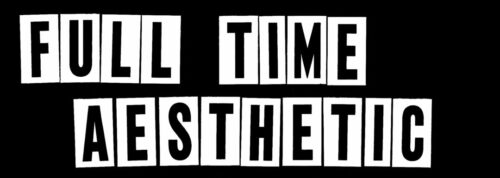Teke::Teke Hagata
TEKE::TEKE are a band that contains multitudes, from their influences, which range from psychedelic rock to surf to garage to Japanese folk, to their own melding of modern and vintage sound, to their Canadian and Japanese identities. Each of the seven members of the Montreal-based group are also multi-instrumentalists, with the credits for the album reading like an orchestra: Maya Kuroki (vocals and guitar), Sei Nakauchi Pelletier (guitar, synth, percussion, vocals), Hidetaka Yoneyama (guitar, vocals), Yuki Isami (flute, shinobue, taisho koto, synth, vocals), Etienne Lebel (trombone, gaida, percussion, vocals), Mishka Stein (bass, synth, percussion, guitar, vocals), and Ian Lettre (drums, percussion, synth, piano, vocals). Yet never on their newest album Hagata do they seem to get lost or mixed-up, rather charting their own course through a heady stew of genres to emerge with something stronger. Indeed, Kuroki says of the album’s title: “Hagata is a very deep word, something present but also something leftover from someone or something no longer there. It’s like waking up from a dream, or being connected to the other side of something.”
The melding of immediacy and dreamlike is a perfect way to describe the overall sound of Hagata. Much of it feels very nostalgic, with 60’s and 70’s pop and psych tones to the guitars and woodwinds, all while Kuroki’s vocal delivery twists and turns, a playful growl here and a soulful melody there. Yet there is a punchy quality to most of the songs and their production, and never does the album get dragged down by looking backwards.

Teke::Teke (photo by Emilio Herce)
Hagata starts off strong with lead track and lead single “Garakuta,” one of my top songs of the year so far. A psychedelic march with a driving flute lead and intense vocal delivery, it sets the stage for the rest of the album, drawing the listener into the trippy work of TEKE::TEKE with an immediate bang. Kuroki’s words (presented in this article through a provided English translation) speak of the heaps of trash people have left on this planet, seemingly from the point of view of the trash: “This flower is made from plastic, that snow from polystyrene / that hill in the distance is a mountain of cellphones… these are voices of waste that cannot return into the ground / our day will come.”
The second single is also the second track, and “Gotoku Lemon” (“Lemon Enlightenment”) is groovy and funky with interweaving guitar and flute melodies, while Kuroki plays the part of some sort of snake-oil/lemon seller, cajoling us to “everyone come closer! / divine effect, immediate remedy for all diseases! / try these lemons, try them! / try these magic lemons that wake you up with just one drop!” The accompanying animated collage video was created by Kuroki and Pelletier.
Hagata doesn’t drop off at all after these first two singles, with a strong lineup of tracks throughout. Highlights of the album are “Onaji Heya” with its slinky guitar riffs and thumping drumbeat, “Doppelganger,” the third single that features a cinematic vintage feel, and “Setagaya Koya,” which moves through an interesting arrangement and rhythmic experimentation. The longest track is the seven minute epic “Kaikijyu,” with a slow build akin to sinking down into the ocean; indeed the lyrics speak of the sea but also move through surreal imagery:
“In the pouring rain, a car stops in the backstreet
Out comes a never-ending stream of men in identical raincoats
Coming in from the back door, instantly filling up my house
Losing my space, I dive into a giant mirror
Inside is a thick and revitalizing deep ocean
Like moving kaleidoscopic and colorful lights,
Like the striking of an empty clock, there is this beautiful sound
Inconspicuously, I turn into a whale
Under the day moon, spreading my fins like wings,
I rush onto the sea with great speed.”
The production quality on Hagata is richly blended, with no part of their layered sound lost. The album was recorded and mixed by Daniel Schlett at The Outlier Inn Studio in Mountain Dale, NY; Schlett also works out of Brooklyn, but the band chose the countryside, and credit the setting (and studio owner Josh Druckman’s vegetables) with contributing to the recording, with Pelletier saying “we wanted to explore the TEKE::TEKE world further, to enrich all the senses, and feeling that comfort made a real difference.”
TEKE::TEKE aren’t only good in the studio, however—they are a compelling live act. FTA caught them live last year at Public Records, and I also had the pleasure of seeing them open for Unwound at Irving Plaza this March, where they put on a vibrant, energetic show. I highly recommend checking them out if they come through your city.
Hagata is out now via Kill Rock Stars and available on all major streamers.

